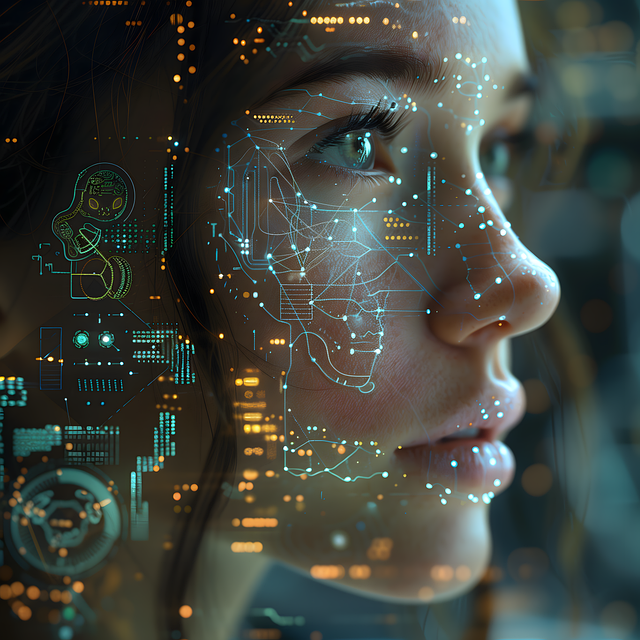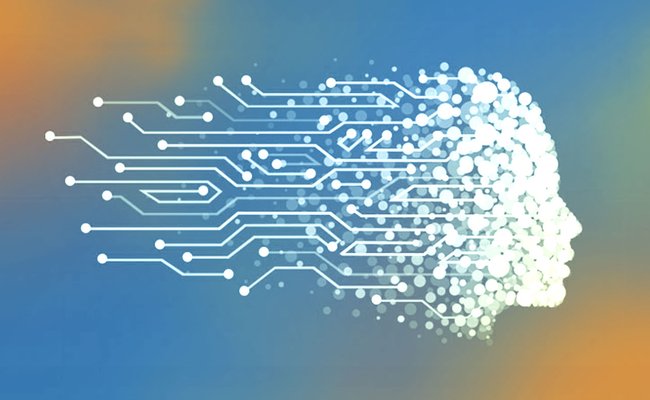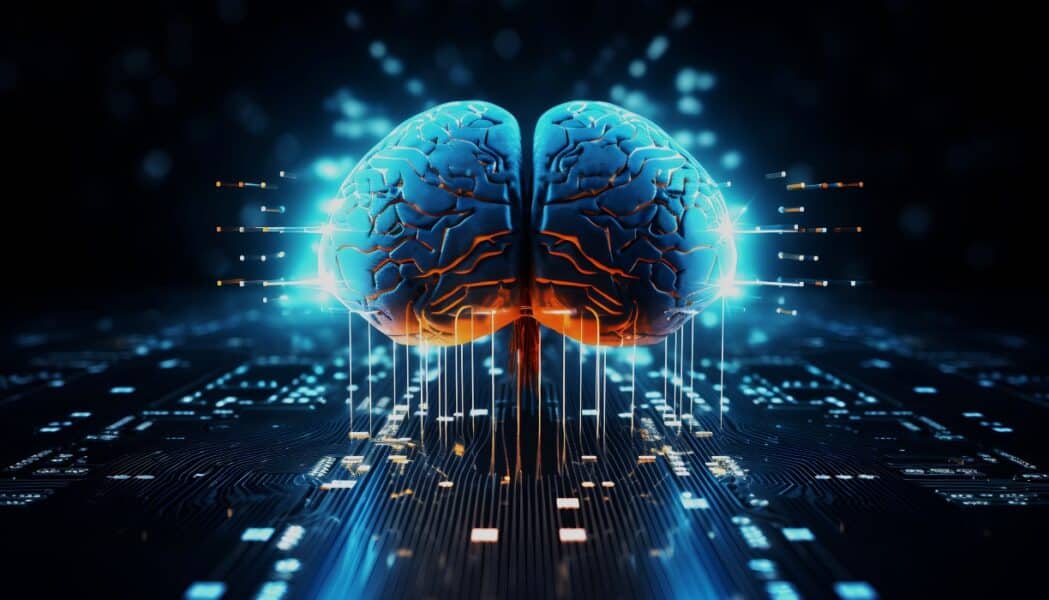
We might make cash when you click links to our partners. Discover more.
What is synthetic general intelligence (AGI), and why does it matter? As one of the most talked-about topics in technology today, it has actually triggered a race among top business like OpenAI and Google to turn this advanced idea into truth. Understanding AGI is necessary due to the fact that it has the prospective to revamp markets, impact our society in extensive ways, and change the method we interact with innovation. Here's what you require to learn about what it may be able to do, how it may change industries and fields, and the substantial difficulties facing its development.

KEY TAKEAWAYS
• AGI differs from standard AI in crucial methods that it would be able to believe, discover on its own, and adapt to new obstacles like humans unlike conventional AI, which is created for specialized tasks and runs within a minimal scope. It needs humans to upgrade and improve abilities. (Jump to Section).
• Once it becomes a truth, AGI would have the ability to make amazing advances in several fields, consisting of healthcare, research study, and financing sectors. (Jump to Section).
• Creating AGI is difficult due to the research challenges that consist of technical, ethical, and societal issues. Addressing these obstacles is central to preserving the safe and positive development of this technology. (Jump to Section)
Featured Partners: Expert System Software
Discover more
TABULATION
What is Artificial General Intelligence (AGI): A Clear Definition.
Understanding AGI vs Traditional AI.
Potential Applications of Artificial General Intelligence.
Challenges in Artificial General Intelligence Research.
3 Introductory AGI Courses to Consider.
Frequently Asked Questions (FAQs).
Bottom Line: Why Knowing What Is Artificial General Intelligence Matters.
What is Artificial General Intelligence (AGI): A Clear Definition
Artificial general intelligence, or AGI, refers to a kind of artificial intelligence (AI) that can translate, find out, and perform any cognitive task that a human can do. Unlike today's AI, which is developed to manage specific tasks like advising items or processing information, AGI would be able to adapt to new challenges and use understanding across various fields. Simply put, this innovative kind of AI would think and reason like a human. While AGI holds great prospective, it's worth noting that it is still a principle today, with no completely established systems offered yet.
Key Capabilities of Artificial General Intelligence
AGI would have a variety of capabilities that mimic human intellectual functions, so it can perform tasks beyond the narrow focus of the present AI tools in the market. Some key abilities consist of the following:
Human-Like Reasoning: The technology would be able to comprehend and make decisions the way human beings do. It would think critically, fix problems, and come up with options based on its own experiences and past interactions, comparable to how we apply past understanding to new scenarios.
Solving Unfamiliar Problems: One of AGI's strengths is its possible to take on new issues. Unlike conventional AI, which is trained to perform particular tasks, AGI would have the capability to manage problems it hasn't been straight trained to fix. It could figure out how to approach a completely brand-new challenge, much like humans do when confronted with something we have actually never ever experienced before.
Self-Learning and Adapting: AGI might fine-tune its skills and learn from experience, without the requirement to be by hand updated every time. It would observe and examine data, gain from mistakes, and discover much better ways to complete tasks with time. This suggests AGI might adjust to brand-new scenarios and improve at jobs by itself.
Using Knowledge Across Different Areas: AGI would be able to take what it discovers in one area and apply it to other tasks. For instance, if it learned how to fix math issues, it might utilize that knowledge to deal with challenges in other fields, like science or company. The capability to move skills across different locations is something humans do naturally and would make the innovation versatile in diverse sectors.
Understanding and Reacting To Emotions: Recognizing and responding to human feelings would likewise be within AGI's capabilities. This would be essential in settings where understanding individuals's feelings matters, such as health care, customer support, or social circumstances. By reacting to feelings properly, AGI would be much better geared up to deal with human beings in an efficient way.
Understanding AGI vs Traditional AI
The table listed below provides a snapshot of the major distinctions in between AI and standard or narrow AI by highlighting their abilities, flexibility, and current status.
AGI would have the capability to believe, discover autonomously, and adapt to brand-new obstacles like human beings. However, it is still theoretical and has not been recognized yet. On the other hand, traditional AI is constructed for particular tasks and runs within a repaired scope. It can not get used to brand-new jobs without human input.
For instance, an AGI could learn to identify medical conditions, then use that understanding to establish customized treatment plans-and even change its technique based on the client's progress. Additionally, it could use this problem-solving capability to tasks in totally various fields, such as developing business techniques or encouraging on environmental conservation. On the other hand, conventional AI, like a diagnostic tool, can only evaluate medical information for specific conditions. It can not adjust to other areas or improve on its own.
Potential Applications of Artificial General Intelligence
While AGI isn't here yet, its prospective applications span many fields and hold excellent guarantee of extreme advancements in numerous sectors. Without being restricted to particular tasks like narrow AI, AGI would be highly flexible and could use its abilities to resolve multi-disciplinary issues. It could overcome challenges currently beyond the capabilities of existing AI applications.
Transforming Healthcare
AGI would alter the video game in health care by detecting complex and uncommon illness with greater precision, even in cases where signs are ambiguous or overlap with numerous conditions. It might develop highly individualized treatment strategies by studying client history, hereditary info, and real-time health information. In addition, AGI could speed up drug discovery, recognizing possible treatments in weeks rather than years by processing huge datasets and pl.velo.wiki running predictive simulations.
Advancing Scientific Research
In clinical research, AGI would have the ability to simulate experiments, analyze intricate datasets, and generate hypotheses. It might expedite breakthroughs in quantum physics, genomics, and climate science. By integrating understanding from numerous domains, the innovation could reveal connections and services that might otherwise go unnoticed by conventional AI.
Improving Industry
Organizations in the industrial field might utilize AGI to boost performance in real-time by managing whole supply chains. It would anticipate and solve disruptions before they happen. In manufacturing, it might oversee autonomous factories, enhancing production processes while preserving security and quality standards. Its ability to get used to altering situations would make it an indispensable tool in commercial environments.
Enhancing Business Strategy
AGI could enhance service decision-making by assessing market patterns, client habits, and functional data to discover chances and threats. In contrast to narrow AI systems, AGI would innovate solutions to challenging organization problems, such as handling financial unpredictability or forecasting long-lasting market shifts. Its capability to gain from varied sources would empower businesses to remain competitive.
Redefining Finance
In the financial sector, AGI might increase forecasting accuracy by identifying patterns in vast quantities of financial information, so investors and organizations can make educated choices. It would likewise have the ability to spot scams in real-time by recognizing subtle anomalies that standard AI systems might miss. Additionally, AGI could build more robust monetary models, considering complex variables and scenarios to mitigate risks.
Challenges in Artificial General Intelligence Research
Developing AGI is among the most enthusiastic objectives in innovation, however it features numerous difficulties. These difficulties include technical, ethical, and social locations, making AGI development a detailed and multi-faceted procedure. Overcoming the following difficulties is identical to ensuring safety, supporting ethical standards, and thoroughly planning how AGI's introduction and usage will affect individuals, industries, and society as a whole:
Making AGI Truly Flexible: AGI would need to manage a wide variety of problems and adapt to brand-new situations, similar to human beings. Building a system of flexibility is incredibly tough since existing AI tools are not created to think or find out at this level of elegance.
Massive Computing Needs: To duplicate human intelligence, AGI would require huge quantities of computing power to procedure information from varied sources rapidly. Determining how to make such systems powerful and efficient enough for real-world use is a substantial difficulty.
Understanding Human Intelligence: We do not completely comprehend how human believing works, especially complicated aspects like intuition or consciousness. Without this understanding, it's challenging to construct machines that can emulate human-like thinking.
Making AGI Safe and Ethical: oke.zone AGI might possibly be misused, like to develop biased systems or harmful tools like self-governing weapons. Researchers need to make certain that AG is built responsibly and follows strict ethical standards. This is a challenging job that necessitates international collaboration.
Keeping It Under Control: machinform.com There's a danger AGI could act in ways we don't expect, particularly since it would have the capability to find out and change in time. Ensuring that these systems stay lined up with human worths and are safe to use is among the greatest challenges in AGI research.
Influence on Jobs and Society: If AGI comes true, it might replace jobs or cause economic inequality by benefitting some groups more than others. Preparing for these social effects is simply as important as developing the innovation itself.
High Costs and Resources: Researching AGI demands a lot of money, time, and specialist understanding. Not all companies have these resources, decreasing progress and leaving smaller sized services out of the race.
3 Introductory AGI Courses to Consider

Familiarizing yourself with AGI can provide you a competitive edge, whether you wish to advance your career in AI or merely wish to remain informed about emerging technologies. The following initial courses can assist you gain a much deeper understanding of what synthetic basic intelligence is, so you can solidify your knowledge about this appealing AI improvement.
Artificial General Intelligence (AGI): trade-britanica.trade An Initial Course on Udemy
This Udemy course provides a basic understanding of AGI, suitable for newbies with no previous experience. The course covers relevant subjects, online-learning-initiative.org including the foundations of AI, the basics of AGI, and the most recent trends in the field. It also explores the benefits, dangers, and difficulties associated with AGI, equipping you with insights into what the sophisticated innovation can attain. The whole course consists of 15 lectures and can be finished in roughly 45 minutes. Upon completion, you will get a certificate to bolster your qualifications in the task market. This introductory course expenses $24.99.
Intro to Artificial General Intelligence (AGI): Future of AI on Udemy
Udemy's introductory course offers an extensive summary of AGI for learners with no technical background. It goes over the historic context and structure of AGI, the distinctions in between narrow AI and AGI, and ethical considerations surrounding its advancement. In addition, it attends to future patterns in AI and AGI, shedding light on the difficulties and opportunities that lie ahead. Spanning one hour and 46 minutes, the course includes 39 lectures, on-demand video, and downloadable resources. It also has a practical test at the end to reinforce your understanding. You will be granted a certificate as soon as you finish the course. It is offered as part of Udemy's premium strategies, beginning at $20 each month, or as a separate purchase of $49.99.
Artificial General Intelligence (AGI) on Udemy
This Udemy course brings a clear and succinct introduction to the topic, with on-demand videos and 22 lectures. It elaborates on significant AGI principles and the function of robotics in AGI development. It likewise examines the ethical, software application, and hardware obstacles in developing AGI. The course offers quizzes to evaluate your understanding and a certificate of completion. Priced at $44.99, it is produced students at any level, making it accessible and valuable for anyone who wants to find out more about AGI.
Frequently Asked Questions (FAQs)
Achieving AGI might reinvent markets, boost decision-making, and result in significant advancements in innovation. However, it likewise raises concerns about ethics, task displacement, and the requirement for correct guideline to make sure it is established securely and properly.
Experts disagree on how far we are from attaining AGI. Sam Altlman of OpenAI thinks in 2025, AI representatives may sign up with the labor force, eventually leading the way to AGI advancement. On the other hand, a survey of AI researchers puts the mean estimate around 2047. Despite fast AI advancements, present systems are still limited to narrow jobs and do not have the broad, flexible thinking of humans-so AGI is likely still decades away.
The concept of AGI completely changing human beings is still disputed. Although it's most likely that AGI will help us by taking over repeated tasks, there is a possibility that it might displace certain jobs. That said, rather than totally changing humans, AGI is expected to work alongside us, dealing with technical obligations while we focus on jobs that require imagination and empathy. At the end of the day, the effects of AGI will depend on how society selects to handle and incorporate it.

Bottom Line: Why Knowing What Is Artificial General Intelligence Matters
Understanding synthetic general intelligence is essential since this innovation might change markets, fix hard issues, and change how we use AI. But as we begin to establish AGI, we should thoroughly attend to a number of difficulties, consisting of technical concerns, ethical concerns, and its total influence on society. By learning more about AGI's prospective and risks, we can pursue ensuring it is developed properly and utilized in methods that would benefit everybody.









